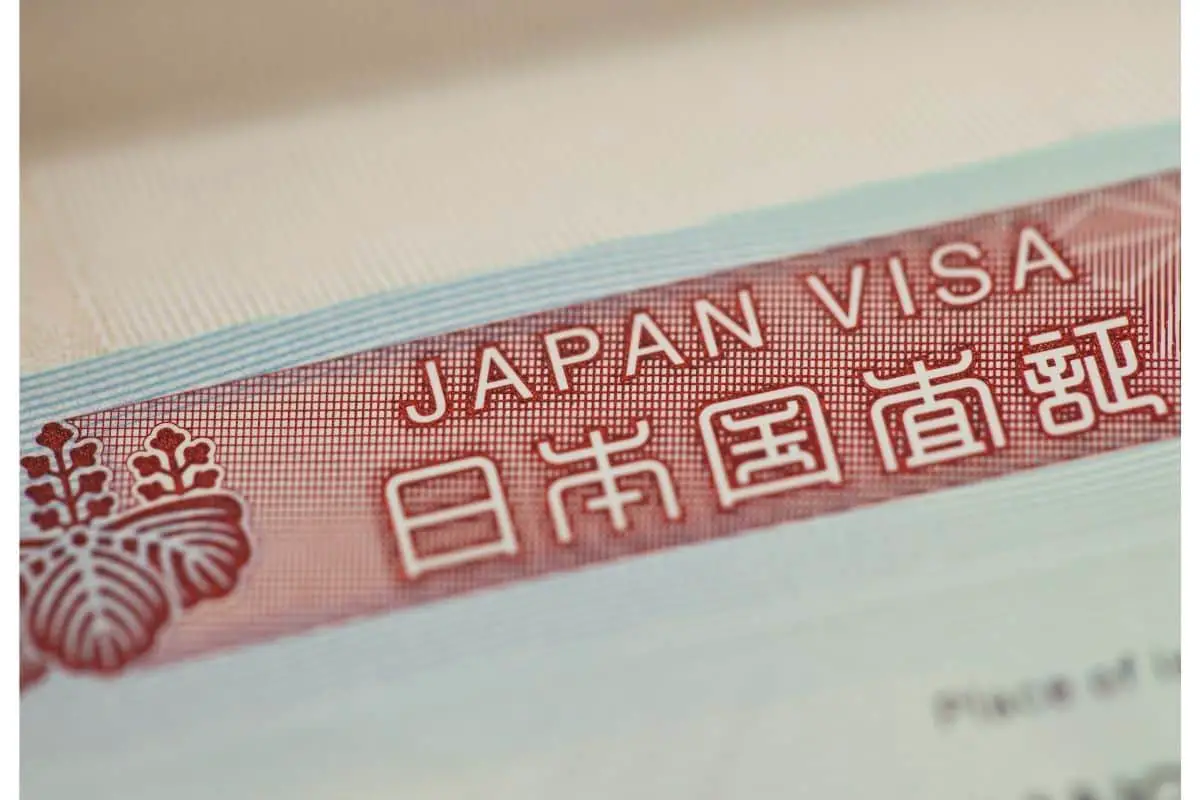Introduction
Understanding the Importance of Legal Residency in Japan
Japan is a nation that beckons people from all over the world for various reasons, be it for travel, study, work, or family. However, the privilege of staying in Japan carries with it certain responsibilities.
Residing legally in Japan is not merely a matter of abiding by the law; it’s a reflection of one’s respect for the country’s culture and governance.

Legal residency ensures that an individual is contributing to Japanese society in a regulated and transparent way. It allows access to public services, legal employment, and the ability to engage in daily activities that may be taken for granted in one’s home country.
Non-compliance, on the other hand, can lead to severe consequences, including fines, detention, and deportation.
Overview of Visa Types and Their Validity Periods
Japan’s visa system is categorized into various types, each serving a specific purpose and audience. Here’s a brief overview:
- Tourist Visa: Typically valid for 90 days, allowing travelers to explore the country for leisure.
- Work Visas: These include different categories such as Instructor, Engineer, and Skilled Labor, each with its validity periods, generally ranging from one to five years.
- Student Visa: Often issued for the duration of one’s academic program, up to four years.
- Spouse or Child of Japanese National Visa: Validity can vary, sometimes aligning with the Japanese spouse’s passport validity.
- Long-term Resident Visa: For those who meet specific criteria, including descendants of Japanese nationals.
- Temporary Visitor’s Visa: Usually valid for 90 days and applicable for business trips or visiting relatives.
- Other Specialized Visas: These cover categories such as Cultural Activities, Research, and more, each with unique validity periods.

The validity period is a fixed time frame during which the visa holder is allowed to stay in Japan. It varies significantly depending on the visa type and the individual’s circumstances.
Importance of Timely Visa Renewal
Timely renewal of one’s visa is crucial. Failing to renew the visa before its expiration can lead to a precarious legal position, possibly resulting in a loss of residency status.
The renewal process should ideally commence well before the visa’s expiration date, as preparation takes time, and unexpected delays might occur.
Timely visa renewal not only helps in maintaining legal residency but also assures a continuous, unbroken life or career in Japan.
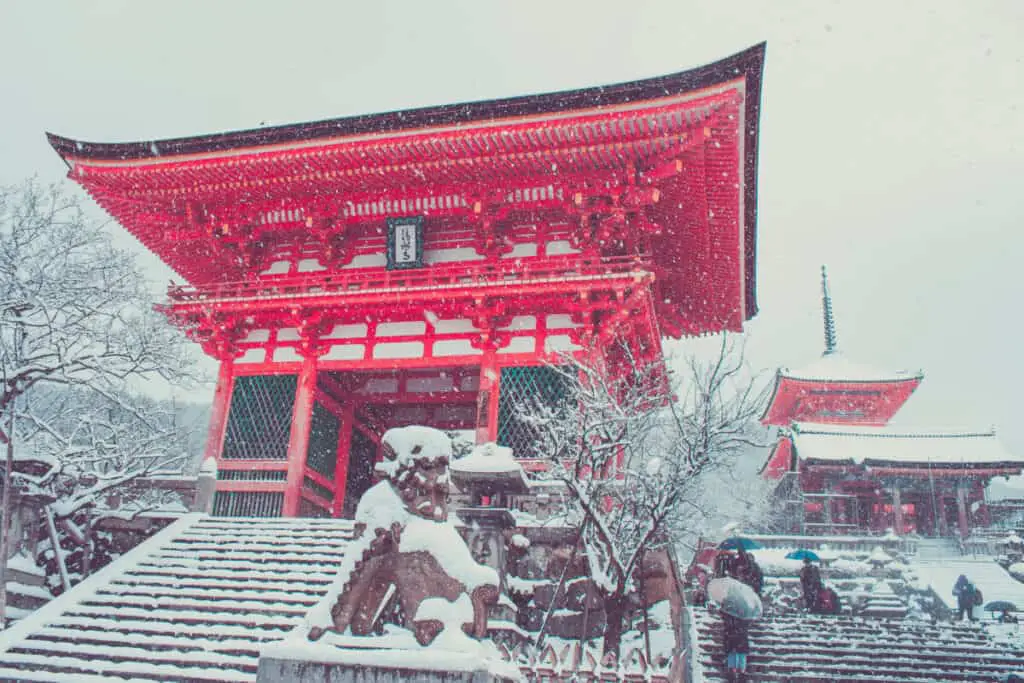
It represents a commitment to abiding by the rules and regulations that govern life in this unique and vibrant country.
In conclusion, understanding the landscape of Japanese visas, their respective validity periods, and the vital importance of timely renewal is essential for anyone planning to live, work, or study in Japan.
It is a foundational step in forging a respectful relationship with the host nation, ensuring a smooth, lawful, and enriching experience.
Chapter 2: Types of Visas in Japan
Japan offers a diverse range of visa categories to cater to various needs and purposes. Understanding these categories and the eligibility criteria for each is crucial for anyone planning to visit or reside in Japan.
In this chapter, we’ll explore the different types of visas and outline the main requirements for each.
Explanation of Various Visa Categories
- Tourist Visa: Designed for short-term leisure visits, this visa typically lasts 90 days. Visitors cannot engage in paid activities.
- Work Visas: Japan offers various work visa categories, each tailored to a particular profession. Some common types include:
- Instructor Visa: For educators in schools.
- Engineer Visa: For engineers, specialists in humanities, and international services.
- Skilled Labor Visa: For those with advanced skills and experience.
- Student Visa: For individuals enrolled in educational institutions in Japan, whether for language studies, university degrees, or vocational training.
- Spouse or Child of Japanese National Visa: For the immediate family members of Japanese nationals.
- Long-term Resident Visa: For those who qualify for extended stay due to their unique circumstances, such as Japanese descent or refugee status.
- Temporary Visitor’s Visa: For business trips, conferences, or visiting friends and family.
- Cultural Activities Visa: For individuals engaging in unpaid cultural activities, like studying traditional Japanese arts.
- Investor/Business Manager Visa: For those managing or investing in a business in Japan.
- Other Specialized Visas: Including Researcher, Medical Services, Entertainer, and others, each serving specific professional purposes.
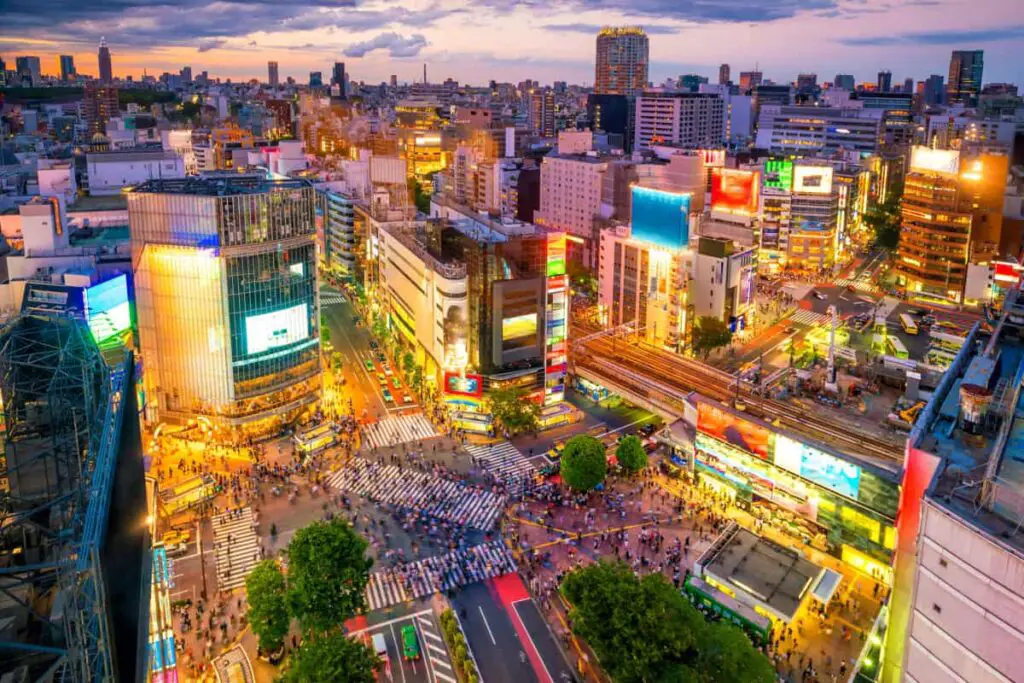
Eligibility Criteria for Each Visa Type
- Tourist Visa: Must have a valid passport, proof of return travel, and sufficient funds for the stay. Some nationalities are exempt from a visa for short visits.
- Work Visas: Generally require a job offer, relevant qualifications, and professional experience in the field.
- Student Visa: Acceptance from a recognized educational institution, proof of sufficient funds, and academic records.
- Spouse or Child of Japanese National Visa: Marriage certificate or proof of relationship, along with documentation from the Japanese spouse or parent.
- Long-term Resident Visa: Specific criteria depend on individual circumstances, such as having Japanese ancestry.
- Temporary Visitor’s Visa: Invitation letter, schedule of stay, and evidence of funds.
- Cultural Activities Visa: Details of the cultural activity, qualifications, and proof of financial support.
- Investor/Business Manager Visa: Business plan, investment capital, and related business documents.
- Other Specialized Visas: Specific requirements vary, typically including professional credentials and supporting documentation related to the purpose of the visa.
Recap
Understanding the type of visa that aligns with your purpose of stay in Japan is the first step towards a successful application.
Each visa category has unique requirements, and applicants must ensure that they meet all eligibility criteria. Knowing the options and requirements sets the stage for the subsequent chapters, where we will delve into the renewal process, ensuring continued legal residency in Japan.
Chapter 3: Knowing Your Visa Expiration Date
One of the critical responsibilities of holding a visa in Japan is being aware of its expiration date. Let’s explore how to find this essential information and understand the severe consequences of overstaying a visa.

How to Determine the Expiration Date of Your Visa
The expiration date of your visa is the date until which you are legally allowed to stay in Japan. Here’s how to determine this vital date:
- Check Your Visa Sticker: The visa sticker in your passport will have the expiration date written on it. It is usually labeled as “VALID UNTIL.”
- Consult Your Residence Card: If you are a resident in Japan, your Residence Card will display the period of stay, clearly marking the date by which you must renew your visa or leave the country.
- Refer to Official Documents: Along with the visa, you might have received official documents from the Japanese embassy or consulate. These documents often contain detailed information about the validity of your visa.
- Inquire at the Immigration Office: If you have difficulty finding or understanding the expiration date, you can contact the nearest immigration office in Japan. They can provide accurate information based on your passport and visa details.
- Use Online Portals: Some online portals and tools can assist you in tracking your visa status and its expiration date, especially if you’re working with an immigration lawyer or agency.
The Consequences of Overstaying Your Visa
Overstaying a visa is a serious offense in Japan, and it comes with grave consequences:
- Detention and Interrogation: Immigration authorities may detain you for interrogation if you are found overstaying your visa. It can be a lengthy and distressing process.
- Fines and Penalties: Overstaying can lead to hefty fines, which vary depending on the duration of the overstay and other circumstances.
- Deportation: Japan’s immigration authorities may deport you back to your home country at your expense.
- Future Travel Restrictions: A record of overstaying can have long-term implications on your ability to travel to Japan in the future. It may result in denial of future visa applications, not only for Japan but potentially for other countries as well.
- Impact on Employment and Housing: Overstaying might lead to the termination of employment contracts or rental agreements, as employers and landlords must comply with legal regulations.
Recap
Knowing your visa expiration date is a fundamental aspect of responsible travel and residency in Japan. Ignorance of this date or willful non-compliance can lead to serious consequences, ranging from fines to deportation and restrictions on future travel.

Understanding and respecting the validity period of your visa is essential for maintaining your legal status in Japan. It’s the foundation for a trouble-free experience in the country, whether you’re visiting, studying, working, or living as a long-term resident.
Chapter 4: Preparing for Visa Renewal
Visa renewal is a process that requires careful planning and attention to detail. This chapter will guide you through the essential steps in preparing for your visa renewal, including gathering the required documents and identifying and overcoming potential challenges.
Gathering Necessary Documents and Paperwork
The documents required for visa renewal vary depending on the visa type. However, the following is a general overview of the necessary documents that you may need to prepare:
- Application Form: Obtain the appropriate renewal application form from the immigration office or online, and fill it out accurately.
- Passport: Your current, valid passport is essential.
- Residence Card: If applicable, your Residence Card is an essential piece of identification.
- Proof of Employment, Enrollment, or Marriage: Depending on your visa type, you may need documents such as an employment contract, enrollment certificate from a school, or marriage certificate.
- Financial Documents: These might include bank statements, tax returns, or proof of income, demonstrating your financial stability.
- Photographs: Passport-sized photographs may be required, adhering to specific size and format guidelines.
- Additional Supporting Documents: Depending on your visa type, additional documents related to your work, study, or family situation might be necessary.
Identifying Potential Challenges and How to Overcome Them

The visa renewal process can present several challenges. Being aware of them and planning accordingly is vital:
- Language Barriers: If you’re not fluent in Japanese, the process may be challenging. Consider seeking assistance from a Japanese-speaking friend, employer, or an immigration lawyer.
- Complex Documentation: Understanding what documents are required and how to obtain them can be confusing. Research thoroughly, consult official websites, or seek professional advice if needed.
- Time Constraints: The renewal process may take several weeks or even months. Start preparing well in advance of your visa expiration date to allow ample time for any unexpected delays.
- Financial Requirements: Ensure that you meet the financial requirements for your visa type and have all the necessary documents to prove your financial stability.
- Legal Compliance: Ensure that all your activities in Japan have been in compliance with the laws and regulations relevant to your visa type. Non-compliance can lead to renewal rejection.
- Changes in Personal Circumstances: If there have been significant changes in your personal or professional life (such as marriage, job change, etc.), be prepared to document and explain these during the renewal process.
Recap
Preparing for visa renewal in Japan is a meticulous process that demands attention to detail, understanding of the requirements, and proactive planning.
By gathering the necessary documents, understanding potential challenges, and planning how to overcome them, you can set yourself up for a successful renewal process.

Remember, laws and regulations can change, so always consult the most recent guidelines or seek professional legal advice tailored to your specific situation.
Chapter 5: Renewing Your Visa Within Japan
Renewing your visa while residing in Japan is a common procedure for foreigners who wish to extend their stay. This chapter will guide you through the step-by-step process for renewing your visa within Japan and offer tips to ensure a smooth renewal experience.
Step-by-Step Process for Renewing Your Visa While Residing in Japan
- Determine Eligibility and Requirements: Assess your eligibility for renewal and understand the specific requirements for your visa type. Refer to official guidelines provided by the Immigration Services Agency of Japan or consult with an immigration lawyer if needed.
- Gather Necessary Documents: Collect all the necessary documents as mentioned in Chapter 4, making sure they are accurate and up-to-date.
- Fill Out the Application Form: Obtain the appropriate renewal application form from the nearest immigration office or download it online. Fill it out carefully, ensuring all information is correct.
- Schedule an Appointment (if applicable): Some immigration offices may require you to schedule an appointment for the renewal process. Check the procedure for your local office.
- Submit Your Application: Visit the local immigration office to submit your application and all required documents. Pay any applicable fees at this time.
- Attend an Interview (if required): Depending on the visa type and individual circumstances, you may be required to attend an interview.
- Wait for Approval: The renewal process may take several weeks. Keep track of your application status and respond promptly if additional information or documents are requested.
- Receive Your Renewed Visa: Upon approval, you will be notified to collect your new visa or Residence Card.
Tips for a Smooth Renewal Experience
- Start Early: Begin the renewal process well in advance of your visa’s expiration date. It’s advisable to start at least three months before the expiry.
- Seek Professional Assistance if Needed: If you find the process confusing or encounter difficulties, consider hiring an immigration lawyer or consultant.
- Follow Guidelines Carefully: Ensure that all forms are filled out correctly and that you provide all the required documents. Any discrepancies or missing information can lead to delays.
- Keep Copies: Keep copies of all documents submitted, including the application form, for your records.
- Maintain Legal Status: Continue to comply with all legal requirements for your visa type throughout the renewal process.
- Prepare for Potential Changes: Be aware that regulations and requirements may change, so always refer to the latest official guidelines or consult with a professional to stay informed.
Recap
Renewing your visa within Japan is a manageable process when approached with careful preparation and attention to detail. By understanding the steps involved, gathering the required documents, and following the provided tips, you can navigate the process with confidence and success.
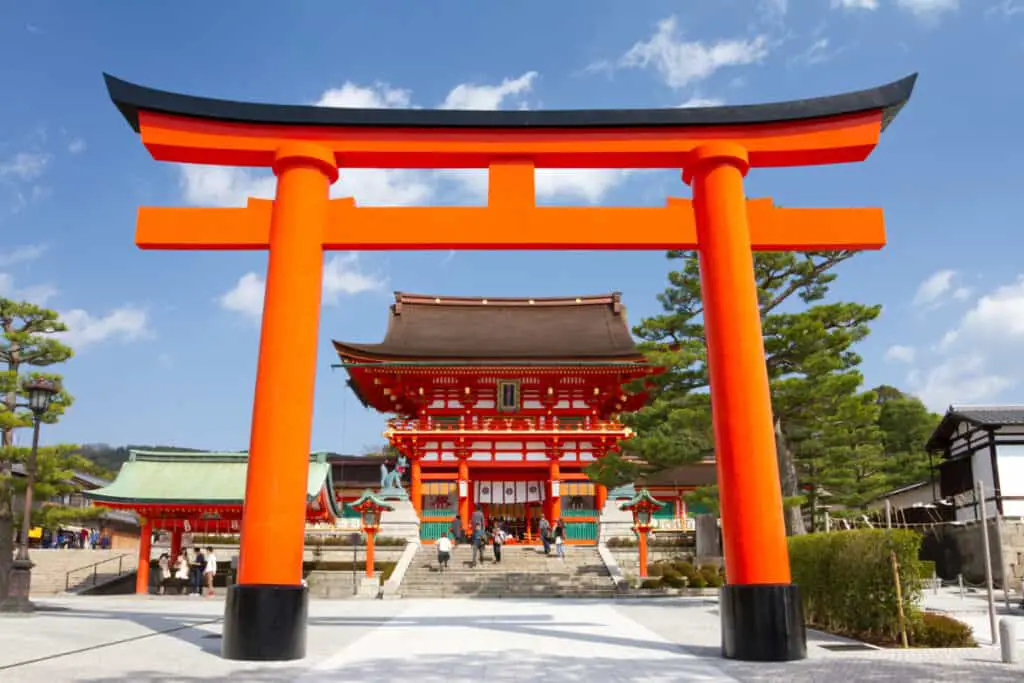
This chapter has provided a comprehensive guide to the process, but always remember that immigration laws and procedures can change.
Always refer to the most recent information from official sources or seek professional advice tailored to your specific situation.
Chapter 6: Renewing Your Visa from Outside Japan
Renewing a Japanese visa from outside the country is a process that may be necessary for various reasons, such as being in your home country when the visa expires. This chapter outlines the procedures and requirements for renewing your visa from abroad and offers guidance on how to avoid common pitfalls during the process.
Procedures and Requirements for Renewing Your Visa from Your Home Country
- Contact the Nearest Japanese Embassy or Consulate: Find the nearest Japanese embassy or consulate in your home country and contact them to inquire about the specific procedures for renewing your visa.
- Obtain the Required Application Forms: Request or download the necessary application forms for visa renewal. Be sure to fill them out accurately, following all provided instructions.
- Gather Supporting Documents: Collect all required documents, such as proof of employment, financial statements, and any other documentation specific to your visa type. Ensure that all papers are up-to-date and comply with the requirements of the embassy or consulate.
- Submit Your Application: Depending on the embassy or consulate’s procedures, you may need to mail your application or submit it in person. Some locations may also allow online submissions.
- Pay the Required Fees: Payment methods vary, so inquire about acceptable payment options and ensure that all necessary fees are paid on time.
- Attend an Interview if Required: Some visa renewals may require an in-person interview at the embassy or consulate. Prepare thoroughly by understanding the purpose of your renewal and having all necessary documents on hand.
- Wait for Approval: Visa renewals can take several weeks or even longer, depending on various factors. Stay patient and keep track of the application status as advised by the embassy or consulate.
- Collect Your Renewed Visa: Upon approval, follow the instructions provided to collect or receive your renewed visa.
How to Avoid Common Pitfalls During the Process
- Understand the Specific Requirements: Regulations can vary between different Japanese embassies and consulates, so ensure you understand the specific requirements for the location handling your renewal.
- Allow Ample Time: International visa renewals can take longer than renewals within Japan. Start the process well in advance of your intended travel date to Japan.
- Maintain Communication: Keep clear communication with the embassy or consulate, promptly responding to any inquiries or requests for additional information.
- Verify Your Eligibility: Confirm that you are eligible for renewal from your home country, as some visa types may have specific restrictions or requirements for renewal outside Japan.
- Consider Professional Assistance: If the process seems overwhelming, consider hiring an immigration consultant or lawyer who specializes in Japanese immigration law.
Recap
Renewing a Japanese visa from outside the country requires careful attention to the specific procedures and requirements of the embassy or consulate handling your application.

By understanding the process, diligently gathering all required documents, and being mindful of common pitfalls, you can navigate this process successfully.
Always refer to the latest information and guidance from the specific Japanese embassy or consulate in your home country or seek professional advice to ensure that you are following the correct procedures for your unique situation.
Chapter 7: Common Reasons for Visa Rejections
Visa rejections can be disheartening, especially if you’ve invested time and effort into the application process.
This chapter will explore common reasons why visa applications get rejected in Japan and offer guidance on how to address and rectify potential issues, increasing your chances of success in the future.
Understanding Why Visa Applications Get Rejected
- Incomplete or Inaccurate Documentation: Missing, inaccurate, or inconsistent information in the application forms or supporting documents can lead to rejection.
- Insufficient Financial Support: Lack of evidence of sufficient financial resources to support your stay in Japan can result in a denial.
- Mismatch Between Visa Type and Purpose of Stay: Applying for a visa that does not correspond with the actual purpose of your visit can be a red flag.
- Failure to Meet Specific Eligibility Criteria: Each visa category has specific eligibility criteria that must be met. Failure to satisfy these can lead to rejection.
- Negative Immigration History: A history of overstaying, working illegally, or other violations of immigration law in Japan or other countries can influence the decision.
- Lack of Ties to Home Country: If you cannot demonstrate strong ties to your home country, the authorities might suspect that you intend to remain in Japan indefinitely, leading to rejection.
- Unconvincing Interview Performance: If an interview is part of the application process, inconsistent or unconvincing answers can result in denial.
How to Address and Rectify Potential Issues
- Thoroughly Review Requirements: Before applying, carefully review the requirements for your specific visa type. Make sure you understand and meet all the criteria.
- Provide Complete and Accurate Information: Fill out all application forms accurately and provide all required supporting documents. Inconsistencies can raise suspicions.
- Demonstrate Financial Capability: Provide clear evidence of your ability to financially support yourself during your stay in Japan. This might include bank statements, tax returns, or a letter from a financial guarantor.
- Choose the Appropriate Visa Category: Ensure that the visa type you are applying for aligns with the actual purpose of your visit to Japan.
- Prepare for the Interview (if applicable): If an interview is required, prepare thoroughly. Be honest and consistent in your answers, and be ready to provide supporting evidence if needed.
- Consider Professional Assistance: If you’re unsure about the process or have faced rejection in the past, consider seeking assistance from an immigration lawyer or consultant.
- Learn from Past Mistakes: If a previous application was rejected, carefully review the reasons for rejection and address those specific issues in your new application.
Recap
Understanding the common reasons for visa rejection and taking proactive steps to address potential issues can significantly improve your chances of success.

Attention to detail, careful preparation, honesty, and alignment with the specific requirements of your visa category are key to a successful application.
Remember, a visa rejection is not necessarily the end of the road; many applicants successfully reapply by addressing the issues that led to the initial rejection. Consider seeking professional advice if you are uncertain about how to proceed.
Chapter 8: Extending the Period of Stay
In some situations, you may find yourself needing or wishing to extend your stay in Japan beyond the maximum duration allowed by your initial visa.
This chapter explores the process of extending your stay, the applicable scenarios, and the necessary requirements to ensure that you maintain legal residency.
Exploring the Process of Extending Your Stay
- Determine Eligibility: Not all visa types may be eligible for an extension. Review the specific guidelines related to your visa category to see if an extension is possible.
- Gather Necessary Documentation: Depending on your visa type and the reason for extension, you’ll need various supporting documents, such as proof of ongoing employment, financial support, or educational enrollment.
- Submit an Application: Apply for the extension at the Immigration Bureau in Japan before your current visa expires. The exact process may vary depending on your location and visa type.
- Pay the Applicable Fees: There will likely be fees associated with the extension application. Make sure to pay these as instructed.
- Wait for a Decision: The processing time for extension applications can vary. You’ll need to wait for a decision and follow any additional instructions provided.
- Collect Your New Residence Card: If approved, you’ll receive a new residence card reflecting the extended stay period.
Applicable Scenarios and Requirements
- Extension Due to Work: If you’re employed and need to stay longer, you must provide evidence of ongoing employment, such as a contract or letter from your employer.
- Extension for Educational Purposes: Students may be able to extend their stay by demonstrating continued enrollment and academic progress.
- Extension for Family Reasons: If you’re staying in Japan to be with family, you may need to provide evidence of family ties, ongoing financial support, and other relevant information.
- Extension Due to Medical Treatment: Those receiving medical treatment in Japan may be eligible for an extension by providing medical records and evidence of financial ability to cover medical expenses.
- Extension Due to Unexpected Circumstances: Unforeseen events like natural disasters, accidents, or other emergencies might justify an extension, but you’ll need to provide appropriate documentation and justification.
- Extension for Tourists: Tourists might be eligible for an extension under specific circumstances, but this can be more challenging and may require substantial justification.
- Extension for Business Managers/Investors: If extending due to business reasons, you’ll need to provide evidence of ongoing business activities, financial sustainability, and compliance with legal requirements.
Recap
Extending your stay in Japan is a structured process that requires careful attention to the rules, timelines, and documentation. It’s essential to start the process well before your current visa expires and to fully understand the specific criteria and requirements for your situation.
Always refer to the latest information and guidelines from the Japanese Immigration Bureau or seek professional advice to ensure that you follow the correct procedures for your unique situation.

Remember, overstaying your visa without obtaining an extension can lead to serious consequences, including deportation and future travel restrictions. Therefore, planning ahead and adhering to the proper legal process is crucial.
Chapter 9: Changing Visa Types
There may come a time during your stay in Japan when you wish or need to change from one visa category to another.
This might be due to a change in employment, marital status, educational pursuits, or other significant life events. This chapter will guide you through the process of switching visa types in Japan, helping you navigate the steps required for a smooth transition.
Understanding When a Visa Change is Necessary
- Change in Employment: If you switch jobs and the new role falls under a different visa category, you’ll need to apply for a new type of visa.
- Starting or Ending Education: Moving from a student visa to a work visa, or vice versa, requires a change in visa type.
- Change in Marital Status: Marrying a Japanese national or someone with a different visa status might necessitate a visa change.
- Investment or Business Opportunities: If you are taking on a new business role or investment opportunity, you may need to switch to a relevant visa category.
How to Switch from One Visa Category to Another
- Review Eligibility Requirements: Each visa type has specific criteria. Ensure that you meet the eligibility requirements for the new visa category.
- Gather Required Documents: Compile all necessary documents that pertain to the new visa type, such as employment contracts, marriage certificates, financial records, or school enrollment papers.
- Complete Application Forms: Obtain and fill out the application forms for changing your visa status. These can often be found on the Immigration Bureau’s website or at local immigration offices.
- Submit the Application: You must submit the application in person at the nearest immigration office. Make sure to do this well before your current visa expires to avoid any legal issues.
- Pay Application Fees: There will be a fee for the application process, so ensure you have the correct amount in the appropriate form (e.g., cash, credit card).
- Attend an Interview if Necessary: Depending on the visa category, you may be required to attend an interview. If so, prepare by understanding the requirements and potential questions.
- Wait for Approval: The processing time can vary, so be patient and comply with any additional requests from the Immigration Bureau.
- Collect Your New Residence Card: If approved, you will receive a new residence card with the updated visa status.
Navigating the Process for a Smooth Transition
- Plan Ahead: Visa changes require time and preparation. Start early to avoid potential problems.
- Follow Guidelines Carefully: Adhere to the specific guidelines and requirements for the visa category you are switching to.
- Seek Professional Assistance if Needed: If the process seems complicated or you encounter difficulties, consider seeking help from a legal professional or immigration consultant.
- Keep Records: Maintain copies of all documents and correspondence related to the application process.
- Stay Informed: Immigration laws and regulations can change, so stay up to date with the latest information from official sources.
Recap
Changing visa types in Japan is a significant legal procedure that requires careful consideration, proper planning, and attention to detail.
By understanding the specific requirements for the new visa category and diligently following the application process, you can facilitate a smooth and successful transition.

Always remember to refer to the most recent information provided by the Japanese Immigration Bureau or consult with a professional who specializes in Japanese immigration law.
Chapter 10: Long-Term Resident Visa
The Long-Term Resident Visa (also known as Teijusha Visa) is a special category of visa in Japan that caters to foreign nationals who have specific reasons to reside in the country for an extended period.
This chapter delves into the eligibility criteria, application process, as well as the advantages and limitations of the Long-Term Resident Visa.
Eligibility Criteria
The Long-Term Resident Visa is generally granted to those who meet one or more of the following conditions:
- Family Connections: Those who are spouses or children of Japanese nationals, or children of permanent residents.
- Refugee Status: Those who have been granted refugee status in Japan.
- Special Contributions: Individuals who have made significant contributions to Japan in various fields may also be considered.
- Humanitarian Grounds: Individuals who need to stay in Japan on humanitarian grounds.
- Other Specific Cases: There may be other unique situations where this visa category is applicable, and these are assessed on a case-by-case basis.
Application Process
- Determine Eligibility: Confirm that you meet the eligibility criteria for the Long-Term Resident Visa.
- Collect Necessary Documents: Gather all required documents, such as family registry papers, proof of relationship, financial statements, etc.
- Complete Application Forms: Obtain the necessary application forms from the Immigration Bureau’s website or local office and fill them out accurately.
- Submit the Application: Hand in your application and all supporting documents to the nearest immigration office.
- Pay Required Fees: Pay the application fee, if applicable.
- Attend an Interview: Some applicants may be required to attend an interview as part of the process.
- Wait for Approval: Processing times vary, so you’ll need to wait for notification of the decision.
- Receive the Visa: If approved, you will receive your Long-Term Resident Visa, allowing you to reside in Japan.
Advantages of the Long-Term Resident Visa
- Flexibility in Activities: Unlike other visas, the Long-Term Resident Visa does not restrict the holder to specific activities such as work, study, etc.
- Potential Path to Permanent Residency: For some, holding this visa may facilitate the process of obtaining permanent residency in the future.
- Family Inclusion: Family members may also be eligible for this visa category, allowing families to stay together.
Limitations of this Visa Type
- Complex Application Process: The process can be intricate and demanding, often requiring extensive documentation and evidence.
- No Guarantee of Permanent Residency: While it may facilitate the path to permanent residency, it does not guarantee it.
- Limited Applicability: The eligibility criteria are quite specific, limiting the applicability of this visa to a relatively small group of individuals.
Recap
The Long-Term Resident Visa serves a distinct purpose in the Japanese immigration system, catering to those with specific and often personal connections to the country. While it offers considerable flexibility, the eligibility criteria are stringent, and the application process can be challenging.
It is advisable to seek guidance from a legal professional or immigration consultant specializing in Japanese immigration law to navigate this complex process successfully.
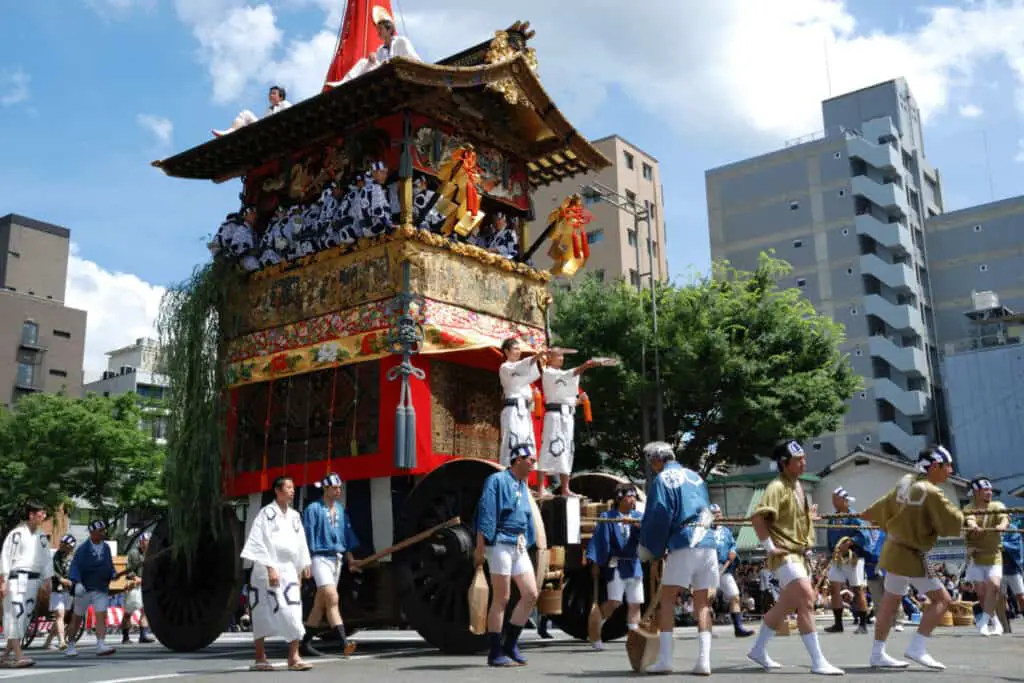
Remember to consult the latest information and guidelines from the Japanese Immigration Bureau, as regulations and procedures can change.
Chapter 11: Spouse Visa Renewal
Renewing a spouse visa (also known as a Spouse of Japanese National Visa) is a vital process for foreign nationals married to Japanese citizens who wish to continue residing in Japan.
This visa type allows the holder to engage in daily activities as a family member without specific restrictions related to employment or study.
This chapter will guide you through the renewal process, highlighting the specific requirements and considerations for this visa type.
Renewing Your Spouse Visa: Step-by-Step Process
- Determine the Renewal Timeline: Start the renewal process well before your current visa expires. Typically, applications can be made three months before the expiration date.
- Gather Required Documents:
- Application form for extension of the period of stay.
- Passport and Residence Card.
- Documents proving the relationship (e.g., marriage certificate).
- Proof of financial stability (e.g., bank statements, tax documents).
- Other documents as required, depending on individual circumstances.
- Submit the Application:
- Visit your local immigration office to submit the application and required documents.
- Pay the necessary fees, if applicable.
- Wait for Approval:
- Processing times vary but usually take several weeks.
- You may be called for an interview to verify information.
- Receive Your Renewed Visa:
- If approved, collect your new Residence Card from the immigration office.
Specific Requirements and Considerations
- Proof of Genuine Relationship: You must demonstrate that the marriage is genuine and ongoing. This may include providing evidence of shared living arrangements, joint financial accounts, or other supporting documents.
- Financial Stability: You must prove financial stability to support yourself and any dependents. This may include proof of employment, savings, or financial support from your Japanese spouse.
- Compliance with Regulations: Ensure that you have abided by the rules and conditions of your existing spouse visa, as any violations may affect the renewal process.
- Possible Changes in Circumstances: If there have been significant changes in your marital status, such as separation or divorce, consult an immigration professional, as this may affect the renewal process.
Tips for a Smooth Renewal Process
- Start Early: Begin gathering documents and preparing the application well in advance to avoid last-minute stress.
- Consult Official Guidelines: Always refer to the latest guidelines provided by the Japanese Immigration Bureau, as regulations may change.
- Consider Professional Assistance: If you encounter complexities in your situation, seeking professional legal or immigration assistance may be advisable.
Recap
Renewing a Spouse of Japanese National Visa is a critical process for maintaining continuous legal residency in Japan. Careful attention to specific requirements, diligent preparation, and adherence to guidelines will contribute to a successful renewal.

Being married to a Japanese national offers the unique opportunity to immerse yourself in Japanese life and culture, but it also carries responsibilities in terms of visa renewal.
Stay informed and proactive to ensure a smooth continuation of your life in Japan with your spouse.
Chapter 12: Work Visa Renewal
Work visas are essential for foreign nationals who wish to engage in paid employment in Japan. As these visas typically have limited validity periods, timely renewal is crucial to maintaining legal employment status in the country.
This chapter will guide you through the renewal process for work visa holders, highlighting key considerations and providing tips for maintaining eligibility and securing renewal.
Renewal Process for Work Visa Holders
- Determine the Renewal Timeline: You can usually start the renewal process around three months before the expiration date of your current visa.
- Gather Required Documents:
- Application form for extension of the period of stay.
- Passport and Residence Card.
- Employment contract or letter from your employer confirming continued employment.
- Proof of payment of taxes and social insurance.
- Other documents related to your specific type of work visa (e.g., Engineer/Specialist in Humanities/International Services, Intra-Company Transferee, etc.).
- Submit the Application:
- Bring all required documents to your local immigration office.
- Pay the necessary fees, if applicable.
- Wait for Approval:
- The process usually takes several weeks but can vary.
- Keep your employer informed of the status of your renewal application.
- Collect Your Renewed Visa:
- If approved, your new Residence Card will be issued at the immigration office.
Tips for Maintaining Eligibility and Securing Renewal
- Understand Your Visa Category: Work visas in Japan are divided into various categories based on the nature of the work. Ensure that your activities align with the specific category of your visa.
- Maintain Compliance with Regulations: Abide by all conditions and requirements of your current work visa. Any violations may lead to difficulties in the renewal process.
- Keep Communication Open with Your Employer: Your employer’s cooperation is essential in the renewal process, as they must provide necessary documents such as a renewed employment contract.
- Monitor Changes in Immigration Law: Stay informed about any updates or changes in Japanese immigration law that may affect your renewal application.
- Consider Professional Assistance: If your situation is complex or you encounter difficulties, consider seeking professional legal or immigration assistance.
Considerations for Different Work Visa Categories
Different work visa categories may have specific considerations or requirements for renewal. For example:
- Highly Skilled Professional Visa: This visa category may have more stringent requirements for renewal, including continued high income and adherence to the specific points system.
- Intra-Company Transferee Visa: Renewal may require additional proof of ongoing affiliation with the parent company outside Japan.
- Technical Intern Training Visa: Consideration may be given to the completion of specific training goals and satisfactory performance.
Recap
Renewing a work visa is a critical process that requires careful planning, attention to detail, and compliance with specific regulations.

Failure to renew on time may result in loss of employment and legal status in Japan.
By understanding your specific work visa category, maintaining open communication with your employer, adhering to all regulations, and seeking professional guidance if needed, you can navigate the renewal process smoothly and continue your professional journey in Japan.
hapter 13: Student Visa Renewal
For international students studying in Japan, the Student Visa (also known as the “College Student” visa) is essential.
As it generally applies for a specific period aligned with your course duration, timely renewal is vital if you plan to continue your studies beyond the original validity period.
This chapter will provide a detailed guide to renewing your student visa in Japan, along with understanding the limitations on part-time work and other restrictions associated with this visa type.
Renewing Your Student Visa: Step-by-Step Process
- Determine the Renewal Timeline: Usually, you can initiate the renewal process three months before your current visa’s expiration date.
- Gather Required Documents:
- Application form for extension of the period of stay.
- Passport and Residence Card.
- Certificate of enrollment or acceptance letter for your continued studies.
- Academic transcripts or proof of academic progress.
- Financial proof, such as bank statements or a letter from a financial guarantor, to demonstrate your ability to support yourself.
- Submit the Application:
- Submit all required documents to your local immigration office or through your educational institution, if they offer assistance in visa renewal.
- Pay any applicable fees.
- Wait for Approval:
- The processing time may take several weeks.
- You may be required to attend an interview or provide additional documentation if requested by the immigration authorities.
- Collect Your Renewed Visa:
- If approved, your new Residence Card will be issued at the immigration office or sent to your educational institution.
Understanding Limitations on Part-Time Work
As a student visa holder, you may be permitted to engage in part-time work, but certain restrictions must be observed:
- Permission Required: You must obtain a “Permission to Engage in Activity Other Than That Permitted Under the Status of Residence Previously Granted” from the immigration office.
- Hourly Limitations: Generally, you cannot work more than 28 hours per week during regular terms, and up to 40 hours per week during long school vacations.
- Prohibited Jobs: Certain jobs, especially those deemed to affect public morals, are prohibited for student visa holders.
Other Restrictions and Considerations
- Academic Performance: You must maintain satisfactory academic progress, as failure to do so may result in difficulties with visa renewal.
- Compliance with Regulations: Any violations of the rules and conditions of your student visa may affect your renewal application.
Tips for a Smooth Renewal Experience
- Start Early: Gather documents and start the renewal process well in advance to avoid any delays.
- Stay Informed: Keep yourself updated with the latest guidelines from the Japanese Immigration Bureau.
- Utilize University Resources: Many universities offer support and guidance for visa renewal, so don’t hesitate to seek help from your institution.
Recap
Renewing a student visa is an essential step for international students wishing to continue their education in Japan.
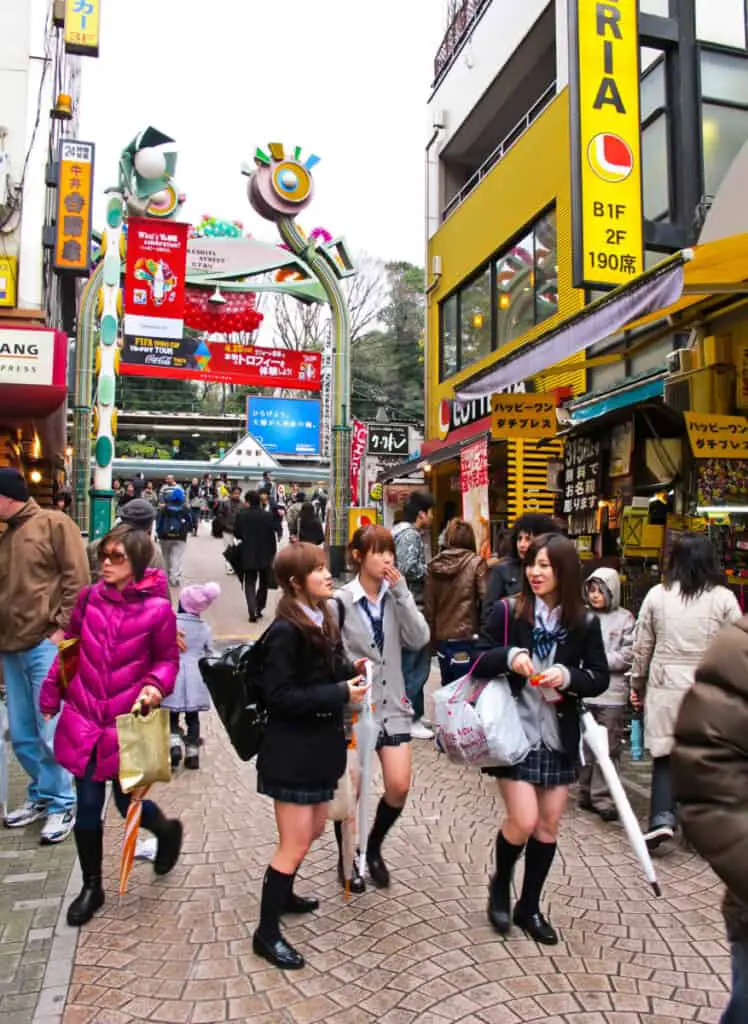
Understanding the renewal process and being aware of the restrictions related to part-time work and other regulations will ensure a smooth continuation of your academic journey in Japan.
By maintaining good academic standing, following the law, and planning ahead, you can focus on your studies and make the most of your educational experience in Japan.
chapter 14: Cultural Activities Visa Renewal
The Cultural Activities Visa in Japan is designed for foreign nationals who intend to engage in academic or artistic activities that promote Japanese culture, arts, or academics.
This visa type may cover researchers, artists, musicians, performers, and others contributing to Japanese cultural heritage. Renewing this visa is essential for those wishing to extend their stay under this category.

In this chapter, we’ll explore the process of renewing the Cultural Activities Visa and discuss the specific requirements and limitations.
Extending Your Stay: Renewal Process
- Determine the Renewal Timeline: As with other visas, you should initiate the renewal process approximately three months before your visa’s expiration date.
- Gather Required Documents:
- Application form for extension of the period of stay.
- Passport and Residence Card.
- Documentation detailing your cultural activities, such as research plans, artwork portfolios, or performance schedules.
- Proof of financial support, demonstrating your ability to sustain yourself without engaging in paid employment.
- A letter of support from a cultural organization, university, or related entity in Japan may also be required.
- Submit the Application:
- Compile all necessary documents and submit them to the local immigration office.
- Pay the processing fees, if applicable.
- Wait for Approval:
- The processing time may vary and could take several weeks.
- Additional documents or interviews may be required, depending on the nature of your cultural activities.
- Collect Your Renewed Visa:
- If approved, your new Residence Card will be issued at the immigration office.
Requirements and Limitations of the Cultural Activities Visa
- Nature of Activities: The activities must be culturally relevant and contribute to the understanding or promotion of Japanese culture, arts, or academics.
- No Remunerative Work Allowed: Under this visa category, you are generally not permitted to engage in paid employment. Exceptions may apply for incidental compensations, but they must comply with immigration regulations.
- Proof of Engagement: You must provide tangible evidence of your cultural activities, such as publications, exhibitions, performances, or affiliations with recognized Japanese cultural institutions.
- Financial Self-Sufficiency: You must demonstrate that you have sufficient funds to support yourself throughout your stay without relying on employment income.
- Alignment with Visa Purpose: Any deviation from the specified cultural activities may lead to complications during renewal or even revocation of the visa.
Tips for Successful Renewal
- Maintain Proper Documentation: Keep detailed records of your cultural activities, including collaborations, performances, exhibitions, etc.
- Stay in Compliance: Adhere strictly to the guidelines and limitations of the Cultural Activities Visa.
- Seek Support from Cultural Organizations: Building relationships with cultural institutions in Japan may ease the renewal process by providing necessary endorsements and support.
Recap
The Cultural Activities Visa provides a unique opportunity for cultural enthusiasts and artists to immerse themselves in Japanese culture and contribute to its global understanding.
However, the renewal process requires careful adherence to the specific requirements and limitations of this visa category.
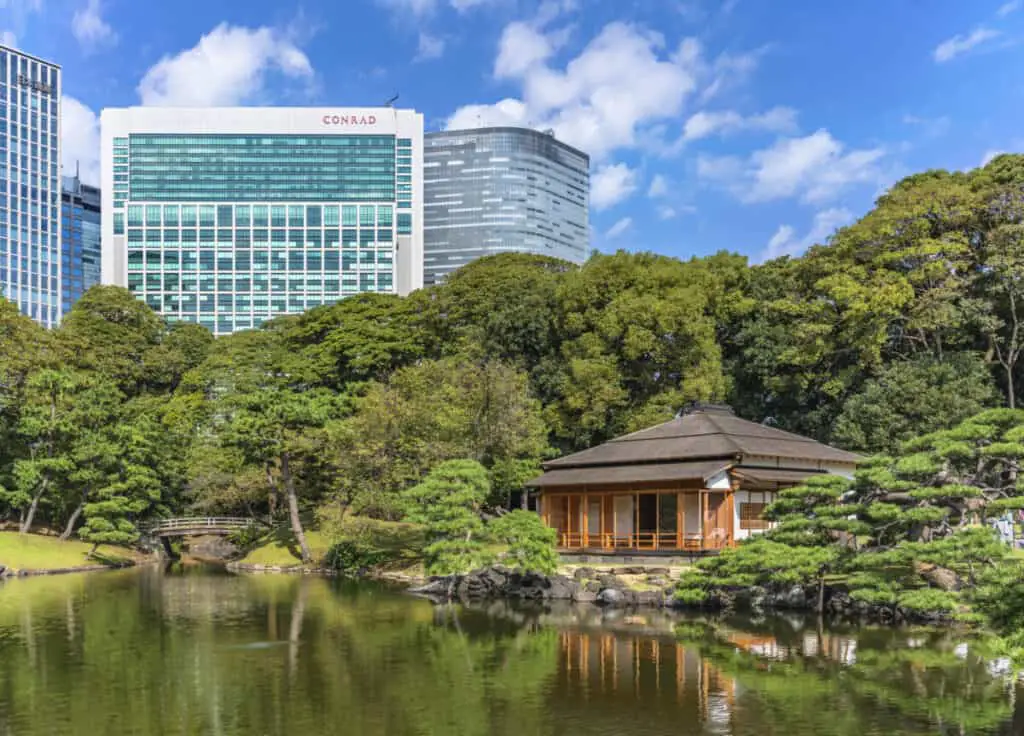
By maintaining proper documentation, staying in compliance with the regulations, and building strong connections within the cultural community in Japan, you can continue to enrich and enjoy your cultural journey in the country.
chapter 15: Investor/Business Manager Visa Renewal
The Investor/Business Manager Visa in Japan is aimed at foreign nationals who are engaged in managing businesses or investments in the country.
This visa type is vital for international entrepreneurs and business managers who contribute to the Japanese economy.

In this chapter, we will explore the guidelines for renewing the Investor/Business Manager Visa, with an emphasis on demonstrating the success and sustainability of your business.
Renewal Process for Investor/Business Manager Visa
- Determine the Renewal Timeline: Begin preparing for renewal at least three months before the visa’s expiration date.
- Gather Required Documents:
- Application form for extension of the period of stay.
- Passport and Residence Card.
- Business plan and financial statements.
- Proof of ongoing business activities, such as contracts, invoices, tax documents.
- Documents relating to the company’s registration and structure.
- Other evidence demonstrating the business’s sustainability and compliance with Japanese laws.
- Submit the Application:
- Submit all required documents to the local immigration office.
- Pay the applicable processing fees.
- Wait for Approval:
- The processing time can vary, depending on the complexity of your business situation.
- Additional documents or interviews may be required to verify the business’s success and sustainability.
- Collect Your Renewed Visa:
- If approved, your new Residence Card will be issued.
Demonstrating the Success and Sustainability of Your Business
- Business Performance: Provide evidence of profitable operations, growth, and stable financial status.
- Compliance with Regulations: Showcase compliance with all applicable Japanese business laws, taxes, and regulations.
- Employment Contribution: Evidence of employing local staff can be favorable, demonstrating a positive impact on the local economy.
- Clear Business Strategy: A well-articulated business plan outlining future growth strategies, target markets, and risk management can be essential in showcasing the long-term sustainability of your business.
Limitations and Considerations
- Investment Thresholds: You must maintain certain minimum investment levels or ownership stakes in the business, as specified by Japanese immigration regulations.
- Business Activities: The business activities must align with those described in the original visa application. Any significant changes might require notification or a change in visa category.
- Adherence to Conditions: Failure to comply with the specific conditions of the Investor/Business Manager Visa may lead to complications in the renewal process.
Tips for a Smooth Renewal Process
- Maintain Accurate Records: Keep detailed and accurate financial records and other business documents, as they will be essential during the renewal process.
- Consult with Professionals: Consider consulting with legal or immigration experts familiar with Japanese business visas, especially if your business situation is complex.
- Stay Informed: Regulations can change, so regularly check the latest guidelines from the Japanese Immigration Bureau.
Recap
The Investor/Business Manager Visa is a crucial pathway for international business professionals to thrive in the Japanese market.
The renewal process requires a clear demonstration of business success and sustainability, adherence to legal requirements, and a commitment to positive economic contribution.
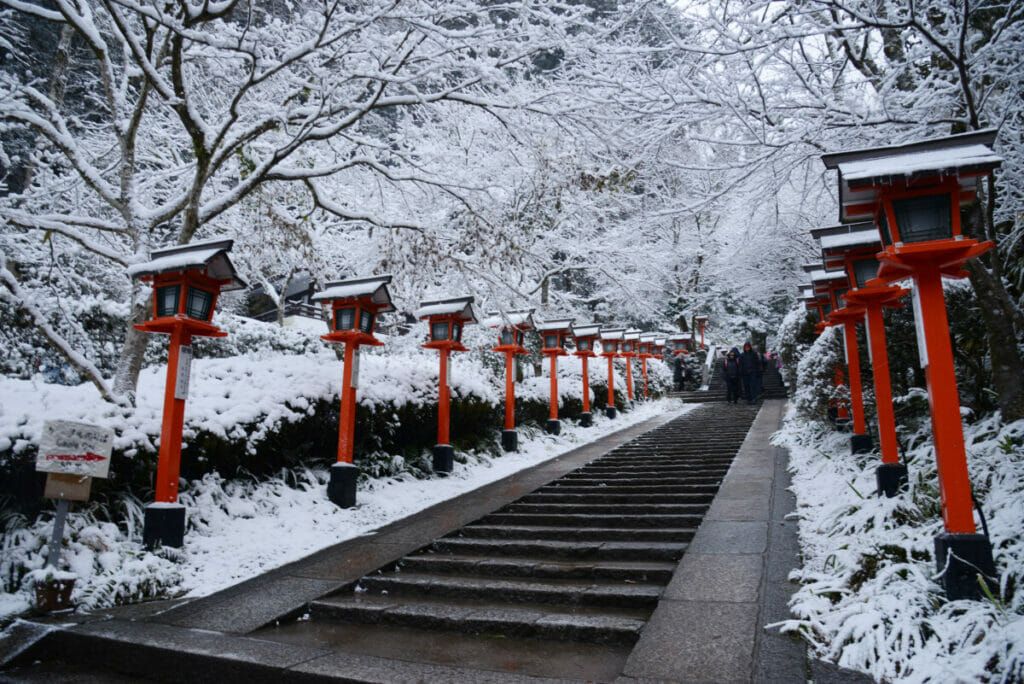
By preparing thoroughly and aligning with the specific requirements of this visa category, investors and business managers can continue to grow and succeed in the vibrant and competitive Japanese business landscape.
Chapter 16: Technical Intern Training Visa Renewal
Japan’s Technical Intern Training Visa is aimed at foreign nationals who come to the country to acquire skills, techniques, and knowledge through internships in various industries.
This unique visa program is designed to foster international cooperation and enhance the skillsets of the trainees.
However, the renewal process for this visa can be intricate and requires careful attention to details. In this chapter, we will explore the renewal procedures for technical intern trainees and delve into the specific issues that may arise, such as traineeship termination.
Renewal Process for Technical Intern Training Visa
- Determine the Renewal Timeline: The renewal should be initiated well in advance of the expiration date, ideally three months prior.
- Gather Required Documents:
- Application form for extension of the period of stay.
- Passport and Residence Card.
- Training plan, including past achievements and future goals.
- A report of the intern’s progress from the supervising organization or employer.
- Any other documents that confirm the continuation of the training program.
- Submit the Application:
- Submit all required documents to the local immigration office.
- Pay the necessary processing fees.
- Wait for Approval:
- This may take several weeks, depending on individual circumstances.
- Be prepared for additional inquiries or interviews if required.
- Collect Your Renewed Visa:
- Once approved, your new Residence Card will be issued.
Addressing Issues Related to Traineeship Termination
- Termination by the Employer: If the traineeship is terminated by the employer, you must report the termination to the immigration authorities. You may need to find a new training opportunity or change your visa status.
- Voluntary Termination: If you decide to terminate the traineeship voluntarily, you must also report it to the authorities. Your visa status may need to be changed, or you may have to leave Japan.
- Disputes and Conflicts: If there are disputes or conflicts leading to termination, it is advisable to seek professional legal help or contact your embassy. The Labor Bureau’s counseling offices may also provide assistance.
Limitations and Considerations
- Alignment with Training Plan: The training must be carried out according to the approved plan. Significant deviations can lead to complications in the renewal process.
- Working Conditions Compliance: The training must comply with Japanese labor laws, including working hours, wages, and safety standards.
- Training Duration: The visa’s maximum validity period varies depending on the training program, so understanding the specific timeframe for your situation is essential.
Tips for Successful Renewal
- Regular Communication with Supervisors: Keep open communication with your supervising organization or employer to align with the training plan.
- Documentation of Progress: Maintain a record of your training progress, achievements, and evaluations.
- Understand Your Rights: Familiarize yourself with your rights and responsibilities under Japanese labor laws.
- Seek Guidance if Needed: If encountering difficulties or disputes, seek guidance from legal professionals or relevant support organizations.
Recap
The Technical Intern Training Visa is an essential avenue for skill development and international cooperation.
However, the renewal process can be complex, and understanding the specific requirements and addressing potential issues related to traineeship termination is crucial.

By adhering to the prescribed training plan, maintaining proper documentation, and navigating challenges with care and professionalism, technical intern trainees can continue to benefit from this unique opportunity to grow and learn in Japan.
Chapter 17: Entertainer Visa Renewal
Japan’s Entertainer Visa is designed for foreign nationals who engage in various entertainment activities such as music, acting, dance, and sports.
This visa allows talented individuals to showcase their skills and contribute to Japan’s vibrant cultural scene.
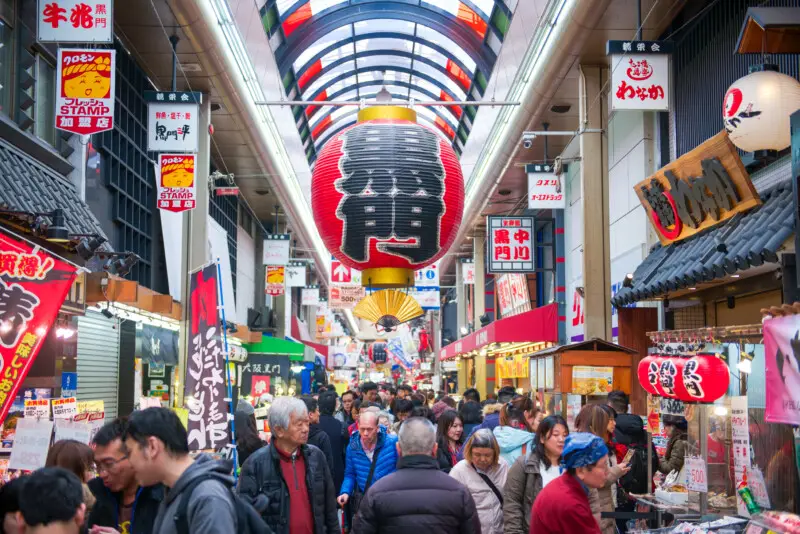
Renewing the Entertainer Visa involves careful consideration of performance contracts, adherence to obligations, and compliance with specific guidelines. In this chapter, we will guide you through the process of renewing your Entertainer Visa in Japan.
Renewal Process for Entertainer Visa
- Determine the Renewal Timeline: Ideally, the renewal process should begin at least three months before the visa’s expiration date.
- Gather Required Documents:
- Application form for extension of the period of stay.
- Passport and Residence Card.
- Performance contracts and agreements.
- Proof of income and tax payments.
- Recommendation or endorsement from related industry associations, if applicable.
- Other evidence of ongoing professional engagements.
- Submit the Application:
- All documents must be submitted to the local immigration office.
- A processing fee may be applicable.
- Wait for Approval:
- Additional documentation or interviews may be required to confirm the continuity and validity of your entertainment activities.
- The processing time can vary based on individual circumstances.
- Collect Your Renewed Visa:
- Once approved, your new Residence Card will be issued.
Complying with Performance Contracts and Other Obligations
- Fulfillment of Contracts: Ensure that all commitments in performance contracts are met, and maintain proper documentation of these engagements.
- Alignment with Visa Conditions: The activities must align with those specified in the original visa application. Any significant deviation may lead to complications in the renewal process.
- Adherence to Japanese Laws: Comply with all relevant Japanese laws, including labor laws, tax obligations, and industry-specific regulations.
- Reputation Management: Maintain a positive professional reputation, as any legal disputes or controversies could affect the renewal process.
Limitations and Considerations
- Validity Period: The renewal period may vary, and it depends on the nature and duration of your entertainment activities.
- Income Requirements: A consistent and reasonable income from entertainment activities must be demonstrated.
- Representation and Sponsorship: Having proper representation or sponsorship within the Japanese entertainment industry may facilitate the renewal process.
Tips for a Smooth Renewal Process
- Documentation of Engagements: Keep detailed records of all performances, contracts, and professional engagements.
- Regular Legal Checkups: Consider regular consultations with legal or immigration experts to ensure ongoing compliance with all regulations.
- Networking and Professional Development: Engage with industry associations and other professionals to maintain a strong presence in the entertainment community.
Recap
Renewing the Entertainer Visa is a vital step for international performers wishing to continue their careers in Japan.
The process demands meticulous attention to performance contracts, legal obligations, and industry-specific requirements.
By fulfilling commitments, adhering to Japanese regulations, and nurturing professional relationships, entertainers can continue to enrich Japan’s cultural landscape and pursue their passions.
Chapter 18: Researcher Visa Renewal
Japan’s Researcher Visa is designated for foreign nationals engaged in research activities at universities, research institutions, or private companies.
It enables academics, scientists, and researchers to contribute to Japan’s intellectual and technological advancements.
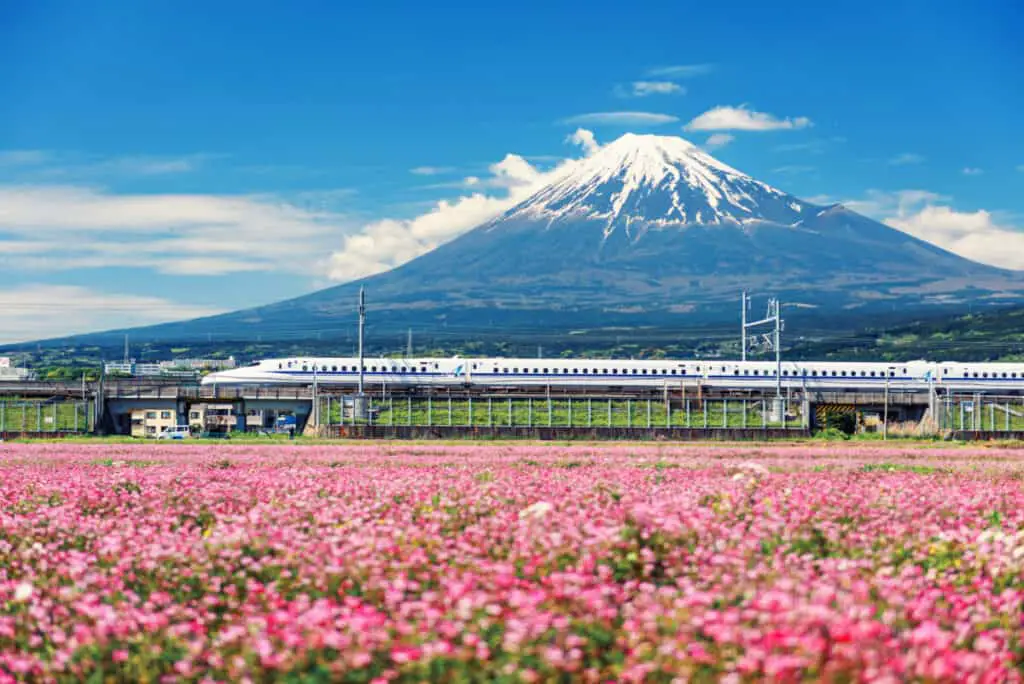
The renewal process for the Researcher Visa is comprehensive and requires careful alignment with research objectives. In this chapter, we will explore the process for renewing the Researcher Visa, emphasizing compliance with the outlined research goals.
Renewal Process for Researcher Visa
- Determine the Renewal Timeline: Start the renewal process at least three months before the expiration of your current visa.
- Gather Required Documents:
- Application form for extension of the period of stay.
- Passport and Residence Card.
- Evidence of ongoing research, such as a research plan, publications, or progress reports.
- Employment contract or agreement with the research institution or university.
- Financial statements, if applicable.
- Submit the Application:
- Submit the gathered documents to the local immigration office.
- Pay any required processing fees.
- Wait for Approval:
- The authorities may request additional documents or interviews to verify the continuation of your research activities.
- Processing time can vary, so it’s wise to apply early.
- Collect Your Renewed Visa:
- Once approved, the new Residence Card will be issued.
Ensuring Compliance with Research Objectives
- Alignment with Research Proposal: Ensure that your ongoing research aligns with the objectives and plans submitted during the initial visa application or previous renewal.
- Fulfillment of Institutional Obligations: Comply with the expectations, rules, and requirements of the host institution or employer.
- Ethical Compliance: Adhere to ethical standards, including obtaining necessary approvals for human or animal research.
- Contribution to the Field: Maintain active involvement in the academic community through publications, conferences, and collaboration.
Limitations and Considerations
- Duration of Renewal: The extension period may vary depending on the nature and phase of the research.
- Income and Funding: Sufficient income or funding must be demonstrated to support your stay.
- Changes in Research Direction: Significant changes in research direction may require thorough documentation and justification.
Tips for Successful Renewal
- Maintain Regular Communication: Keep open communication with your supervising institution or employer, as their support is vital during the renewal process.
- Document Research Progress: Regularly document and evaluate your research progress in alignment with the proposed objectives.
- Stay Informed About Regulations: Ensure ongoing compliance with Japanese regulations related to your research field.
- Build a Professional Network: Engage with the academic community in Japan, including attending conferences, seminars, and other professional development opportunities.
Recap
The renewal of the Researcher Visa in Japan is a critical step for academics and researchers wishing to extend their work in the country.
By understanding the specific requirements, aligning with the research objectives, and maintaining ethical and institutional compliance, researchers can successfully navigate the renewal process.

The continuous contribution to the scientific and academic community will not only facilitate the renewal but also foster a robust and dynamic intellectual environment in Japan.
Chapter 19: Professor Visa Renewal
Japan’s Professor Visa category is designed for foreign nationals who are engaged in education at universities, colleges, or other educational institutions in the country.
The role of educators is invaluable in shaping minds and contributing to the intellectual growth of the society. Renewing a Professor Visa is a meticulous process that entails verifying qualifications, achievements, and contributions to the educational field.
This chapter provides a comprehensive guide to renewing a Professor Visa in Japan, emphasizing the importance of documenting contributions to educational institutions.
Renewal Process for Professor Visa
- Determine the Renewal Timeline: Start the renewal process at least three months before the current visa’s expiration date.
- Gather Required Documents:
- Application form for extension of the period of stay.
- Passport and Residence Card.
- Employment contract or offer letter from the educational institution.
- Evidence of teaching activities, such as course outlines, teaching schedules, and student evaluations.
- Academic credentials, including degrees and certificates.
- Documentation of contributions to the educational community, such as publications, conference participation, or community engagement.
- Submit the Application:
- Submit the documents to the local immigration office responsible for your jurisdiction.
- Pay the required processing fees.
- Wait for Approval:
- The process may include an interview or additional documentation requests.
- Processing times may vary, so it is advisable to apply well in advance.
- Collect Your Renewed Visa:
- Once approved, the new Residence Card will be issued.
Documenting Contributions to Educational Institutions
- Teaching Excellence: Maintain records of your teaching activities, including student evaluations, syllabi, and innovative teaching methods.
- Academic Achievements: Document your academic research, publications, conference presentations, and collaborations.
- Community Involvement: Highlight contributions to the institution and wider educational community through committee participation, mentoring, outreach, and service.
- Professional Development: Demonstrate continuous professional growth through workshops, courses, certifications, or leadership roles.
Limitations and Considerations
- Renewal Period: The extension period may depend on your contract with the institution and the nature of your work.
- Income Requirements: Sufficient income must be shown to support your stay in Japan.
- Alignment with Visa Conditions: The educational activities must align with those initially specified in the visa application.
Tips for Successful Renewal
- Maintain Strong Institutional Ties: Foster positive relationships with colleagues, administrators, and students, as their support can be essential in the renewal process.
- Stay Current with Regulations: Regularly review the regulations related to educational visas to ensure compliance.
- Engage in Continuous Learning: Stay engaged with the broader academic community and continuously strive to enhance your professional skills.
Recap
Renewing a Professor Visa in Japan is an opportunity to reflect on and showcase your contributions to the educational field.
Through meticulous documentation of teaching, research, community engagement, and professional development, you affirm your ongoing commitment to education in Japan.

By adhering to the renewal procedures, maintaining strong institutional ties, and embracing continuous learning, educators can successfully continue their vital roles in shaping the intellectual landscape of the country.
Chapter 20: Dependent Visa Renewal
Japan’s Dependent Visa category allows the spouses and children of foreign nationals with long-term visas (such as work, study, or investor visas) to reside in Japan with their family members.
The renewal process of a Dependent Visa is closely tied to the status and activities of the primary visa holder.
This chapter outlines the procedures for renewing a Dependent Visa in Japan, with an emphasis on satisfying financial requirements and demonstrating family ties.
Renewal Process for Dependent Visa
- Determine the Renewal Timeline: The renewal process should begin at least three months before the current visa’s expiration date. Ensure alignment with the primary visa holder’s status.
- Gather Required Documents:
- Application form for extension of the period of stay.
- Passport and Residence Card.
- Documents proving the relationship to the primary visa holder (such as marriage or birth certificates).
- Proof of financial support, such as bank statements or income certificates of the primary visa holder.
- Proof of living arrangements, such as a lease agreement or housing contract.
- Submit the Application:
- Submit the documents to the local immigration office responsible for your jurisdiction.
- Pay the required processing fees.
- Wait for Approval:
- The immigration authorities may request additional documents or an interview to verify the relationship and financial support.
- Processing times may vary, so apply well in advance of the expiration date.
- Collect Your Renewed Visa:
- Once approved, the new Residence Card will be issued.
Satisfying Financial Requirements
- Sufficient Income: The primary visa holder must demonstrate the ability to financially support dependents. This includes accommodation, daily living expenses, education, healthcare, and other necessities.
- Stable Employment or Funding: Employment contracts, salary slips, bank statements, or other financial records may be required to establish stable financial resources.
- Alignment with Primary Visa Holder’s Status: The financial requirements must align with the primary visa holder’s visa category, employment, or activities.
Demonstrating Family Ties
- Documenting Relationships: Properly certified documents, such as marriage certificates for spouses or birth certificates for children, must be provided.
- Living Together: Evidence of cohabitation may be required, such as shared housing agreements or joint bills.
- Alignment with Primary Visa Holder: Ensure that the dependent’s status and activities align with the primary visa holder’s status.
Limitations and Considerations
- Renewal Period: The extension period typically aligns with the primary visa holder’s renewal period.
- Activities Restriction: Dependents under this visa category may have restrictions on working full-time. Understanding these restrictions is vital.
- Changes in Family Situation: Significant changes, such as the birth of a child or marriage, must be promptly reported.
Tips for Successful Renewal
- Maintain Clear Documentation: Keep all financial records and relationship documents up to date and readily available.
- Understand Regulations: Stay informed about the regulations pertaining to the Dependent Visa category and align with the primary visa holder’s status.
- Communicate with Primary Visa Holder’s Institution: Coordination with the primary visa holder’s employer, school, or sponsoring organization can facilitate the renewal process.
Recap
Renewing a Dependent Visa in Japan involves a comprehensive process that ensures the welfare and legality of family members accompanying foreign nationals in the country.
By satisfying the financial requirements, demonstrating clear family ties, and aligning with the primary visa holder’s status, dependents can enjoy continued residence in Japan.
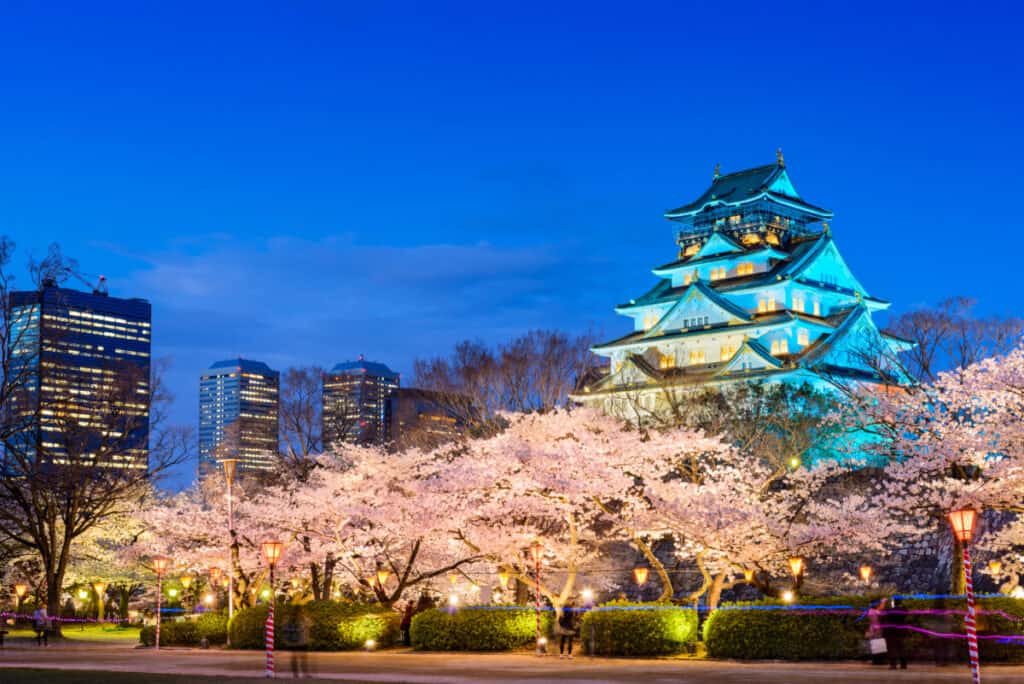
Careful planning, understanding of regulations, and coordination with relevant parties contribute to a smooth renewal experience, reinforcing family unity during the stay in Japan.
Chapter 21: Special Visa Renewal Circumstances
In some instances, unforeseen and unavoidable circumstances such as natural disasters, medical emergencies, or other crises may affect the visa renewal process in Japan.
Navigating these unique situations requires understanding and utilizing specific provisions that the Japanese government has in place for these exceptional cases.
This chapter will guide you through the process of handling special visa renewal circumstances.
Natural Disasters
Japan’s geographical location makes it susceptible to natural disasters such as earthquakes, typhoons, and floods. Should such an event occur during your visa renewal process:
- Contact the Nearest Japanese Embassy or Consulate: If you are outside Japan, get in touch with the nearest embassy or consulate. They may provide specific guidance or assistance.
- Notify the Local Immigration Office in Japan: If you are in Japan, contact the local immigration office responsible for your area. They will guide you on the appropriate steps.
- Provide Supporting Documents: You may need to submit evidence of the disaster’s impact on your ability to renew your visa, such as news reports or official notices.
- Seek an Extension if Necessary: Depending on the situation, you may be granted a temporary extension or other leniency to facilitate your renewal.
Medical Emergencies
Medical emergencies can be distressing, especially when coinciding with visa renewal. In such cases:
- Seek Medical Attention: Your health is the priority. Ensure that you or your dependents receive appropriate medical care.
- Inform the Immigration Authorities: Notify the local immigration office about your situation, explaining how it affects your renewal process.
- Submit Medical Documentation: Provide medical certificates, hospital records, or other supporting documents that clearly explain the situation.
- Follow Immigration Guidance: Comply with the guidance provided by the immigration authorities, who may grant an extension or temporary measures based on the medical situation.
Other Unavoidable Circumstances
Various unexpected circumstances may arise that affect your ability to renew your visa on time. These could include legal issues, personal crises, or political unrest in your home country.
- Contact the Relevant Authorities Promptly: Whether it’s the local embassy, consulate, or immigration office, communicate your situation clearly.
- Provide Supporting Evidence: Any official documentation or evidence that explains your situation should be submitted.
- Comply with Given Instructions: Follow the guidance and procedures provided by the authorities.
Seeking Extensions Due to Unavoidable Circumstances
In special circumstances, you may be eligible for a temporary extension or special consideration for your visa renewal:
- Submit a Request: Depending on the situation, you may need to fill out specific forms or write a formal request.
- Provide Comprehensive Evidence: Include all supporting documents that detail the exceptional situation you are facing.
- Cooperate Fully with Authorities: Prompt and complete cooperation with the immigration authorities will facilitate their understanding and handling of your case.
Recap
Special visa renewal circumstances require careful attention, clear communication, and full cooperation with the relevant authorities.

Recognizing the provision that Japan’s legal framework has for such scenarios, and knowing how to navigate them, ensures that you can maintain legal status even when faced with unexpected challenges.
Always consult with immigration professionals or legal advisors in Japan if you find yourself in any of these situations, as they can provide specific guidance tailored to your individual case.
Chapter 22: Visa Renewal and Permanent Residency
Many foreign nationals living in Japan may consider permanent residency (PR) as a long-term goal. PR status provides numerous advantages, including greater stability, fewer restrictions, and more flexibility in terms of employment and lifestyle.
However, the journey to achieving permanent residency often involves several visa renewals, each of which plays a crucial role in the overall process.
This chapter focuses on how visa renewals affect the application for permanent residency and the steps to take for a smooth transition.
How Visa Renewals Affect Permanent Residency
- Continuous Legal Residency: Each successful visa renewal contributes to maintaining a continuous legal residency in Japan, a fundamental requirement for permanent residency. Gaps or violations in visa status may adversely affect the PR application.
- Contribution to Residency Duration: The length of time spent in Japan under valid visas counts towards the residency duration requirement for PR. Timely renewals ensure that you are accumulating the necessary time.
- Demonstration of Compliance: Regular renewals without issues demonstrate compliance with Japanese immigration laws, reflecting positively on your permanent residency application.
- Maintenance of Qualifying Status: Certain visa categories may lead more naturally to PR, such as Highly Skilled Professional Visas. Continuous renewals within these categories can enhance eligibility for permanent residency.
Steps to Take for a Smooth Transition to Permanent Residency
- Understand the Requirements: Research and understand the eligibility criteria for permanent residency, including specific residency duration, income level, social integration, and more.
- Plan Your Visa Path: Strategically choose visa categories that align with your long-term goals and will support your future PR application. Seek professional advice if needed.
- Maintain Compliance: Always renew your visa on time, follow all regulations associated with your visa type, and keep all records meticulously.
- Build a Strong Application Profile: Focus on aspects that will strengthen your PR application, such as stable employment, community involvement, language proficiency, and contributions to Japanese society.
- Prepare for PR Application Early: Begin gathering necessary documents and preparing your PR application well before you are eligible to apply.
- Seek Professional Assistance: Immigration lawyers or specialists may assist in ensuring that your transition from visa renewals to permanent residency is as smooth as possible.
- Consider Timing: Strategically time your PR application, taking into account your current visa expiration date. You may need to renew your existing visa while waiting for the PR application to be processed.
- Communicate with Immigration Authorities: Keep the immigration office informed if you are applying for PR and coordinate with them regarding your existing visa status.
Recap
The journey from multiple visa renewals to permanent residency in Japan is intricate and requires careful planning, adherence to regulations, and strategic decision-making.
Ensuring successful visa renewals is integral to this path, contributing to eligibility and building a strong profile for the PR application.
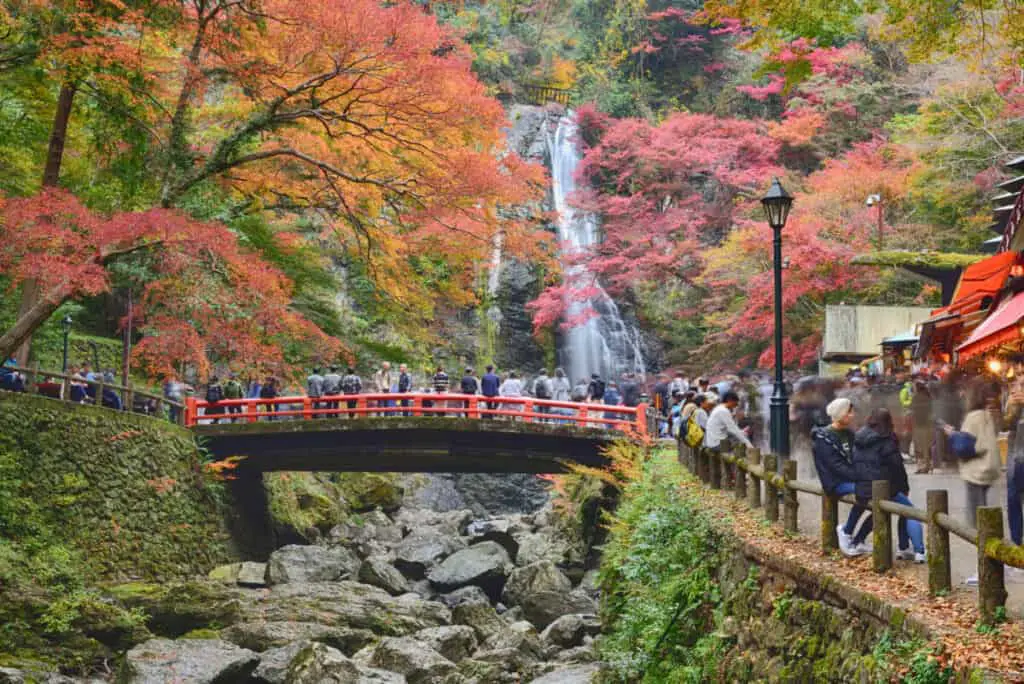
Being mindful of the interconnectedness between visa renewals and permanent residency can lead to a rewarding long-term stay in Japan with all the benefits and privileges that come with PR status.
Understanding the detailed requirements, seeking professional advice, and taking a proactive approach are key to successfully navigating this complex process.
Chapter 23: Frequently Asked Questions
The process of renewing a visa in Japan can be complicated and multifaceted. Consequently, many applicants have questions about the process.
This chapter aims to address some of the most common queries related to visa renewal procedures.
Q1: When should I start the renewal process for my visa?
A1: It’s advisable to start the renewal process at least 3 months before your visa’s expiration date. Waiting too long may lead to unnecessary stress and complications.
Q2: Can I renew my visa online?
A2: As of the latest update, Japan primarily handles visa renewals through its regional immigration offices. Online renewal may not be widely available, so it’s best to consult with your local immigration office for the specific procedures.
Q3: What happens if I overstay my visa?
A3: Overstaying a visa is a serious offense in Japan and can lead to fines, detention, and deportation. It may also negatively impact future visa applications. If you realize that you have overstayed, contact your local immigration office immediately for guidance.
Q4: Can I change my visa type during the renewal process?
A4: Yes, you can apply to change your visa category during the renewal process if you meet the criteria for the new visa type. Thoroughly consult the requirements for the new category and seek professional advice if needed.
Q5: How long does the renewal process take?
A5: The renewal process typically takes 1 to 3 months but can vary depending on the visa type and specific circumstances. Plan accordingly to avoid any gaps in your legal status.
Q6: Is there a grace period if my renewal application is delayed?
A6: There is no official grace period, so it is vital to apply for renewal well in advance. If unavoidable circumstances cause a delay, consult with the immigration office as soon as possible.
Q7: What if my renewal application is rejected?
A7: If your renewal application is rejected, you will usually be given a reason for the rejection. You may have the opportunity to appeal the decision or correct the issues and reapply, depending on the circumstances.
Q8: Can I travel outside Japan while my renewal application is being processed?
A8: Traveling outside Japan during the renewal process can be risky and may lead to complications. Consult with the immigration office before making any travel plans.
Q9: How do I prove financial stability during the renewal process?
A9: You may need to submit documents like bank statements, tax returns, or pay slips to demonstrate financial stability. The exact requirements vary depending on the visa type.
Q10: Can family members be included in my renewal application?
A10: Family members holding dependent visas will generally need to apply for their renewals separately. However, their renewals are typically aligned with the primary visa holder’s status.
Recap
While this chapter addresses some of the most common questions related to visa renewal in Japan, every situation is unique.
It may be beneficial to consult with an immigration lawyer or specialist who can provide guidance tailored to your specific circumstances.

Additionally, rules and regulations may change, so it is always a good idea to verify the current requirements with the appropriate Japanese authorities.
Feel free to refer back to previous chapters for more in-depth information on various aspects of the renewal process, or consult with the local immigration office for the most accurate and up-to-date guidance.
Chapter 24: Tips for a Successful Visa Renewal
Renewing a visa is an essential process for those wishing to continue living, working, or studying in Japan.
While the procedures and requirements may seem daunting, there are ways to streamline the process and enhance your chances of a successful renewal.
Here, we share practical advice and best practices to guide you through this essential task.
1. Start Early
Begin the renewal process at least three months before your visa expires. Early preparation allows ample time to gather necessary documents and correct any potential issues.
2. Understand Your Visa Type
Familiarize yourself with the specific requirements and conditions of your visa category. Different visas have unique criteria, so ensure that you understand the exact demands of your particular visa.
3. Gather All Required Documents
Organize all necessary documents as early as possible. Missing paperwork can delay the process. Double-check the latest guidelines, as requirements may change over time.
4. Consult an Expert if Needed
If you encounter any difficulties or have any concerns, don’t hesitate to seek professional advice. Immigration lawyers and specialists can help guide you through complex situations.
5. Follow Guidelines Carefully
Adhering to all guidelines and instructions is crucial for a smooth process. Pay close attention to detail and follow the procedures exactly as instructed.
6. Maintain Legal Status
Always comply with the terms and conditions of your current visa. Any violations could affect the renewal process negatively.
7. Prepare for an Interview if Required
Depending on your visa type, you may be required to attend an interview. Prepare well by reviewing your application and understanding the main requirements.
8. Monitor Your Application Status
Stay updated on your application status by regularly checking with the immigration office or online portal if available. Promptly respond to any requests for additional information.
9. Avoid Traveling During the Process
As previously noted, traveling outside Japan during the renewal process can complicate matters. Ensure your renewal is complete before making any travel plans.
10. Consider Permanent Residency
If eligible and interested, you might want to explore the path to permanent residency. Starting this process alongside or soon after your renewal could save time in the long run.
11. Stay Informed
Immigration rules and regulations may change, so stay informed about any updates that could affect your renewal. Regularly consult official resources or consult with experts to stay abreast of the latest information.
Recap
Visa renewal in Japan is a systematic and comprehensive process that requires attention to detail and proper planning.
By adhering to the practical advice provided in this chapter, you can enhance your chances of a successful and stress-free renewal.
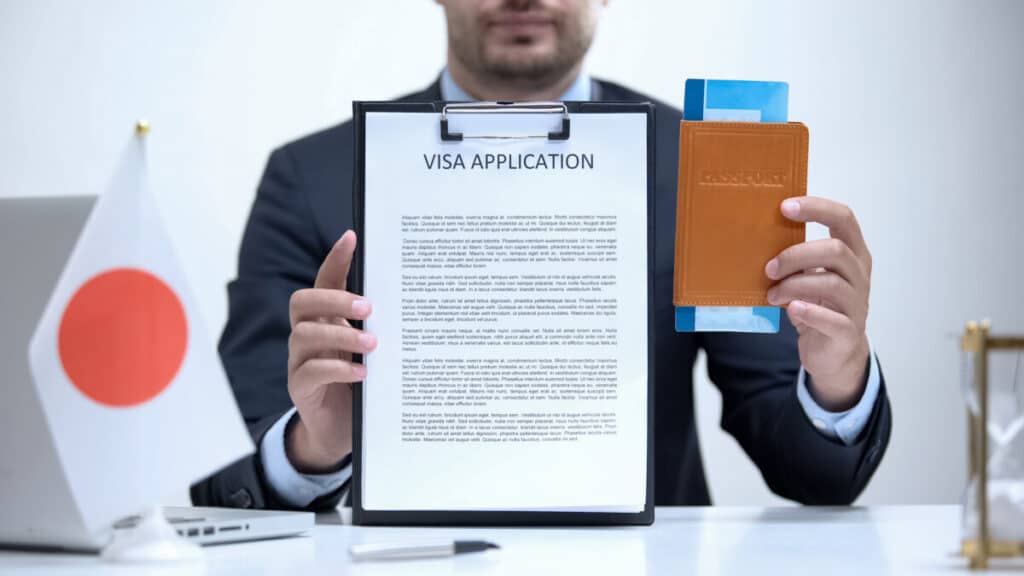
Remember, understanding the requirements specific to your visa type and staying proactive will go a long way in ensuring your continued legal residency in Japan.
If you have further questions or concerns, don’t hesitate to consult the previous chapters for more information or seek professional assistance tailored to your individual circumstances.
Chapter 25: Conclusion
The process of renewing a visa in Japan, while undeniably intricate, is an essential task for anyone planning to extend their stay in the country.
This guide has aimed to provide you with a comprehensive understanding of the entire renewal process, covering a broad range of topics, and specific details tailored to various visa categories.
Recap of Essential Points
- Understanding Visas: Knowing the different types of visas, their eligibility criteria, and specific requirements is vital in choosing the right path for you.
- Timely Renewal: Proactive planning, understanding your visa expiration date, and initiating the renewal process early can save you from unnecessary stress and legal issues.
- Preparation and Documentation: Gathering necessary documents and preparing thoroughly are key steps in the renewal process.
- Avoiding Common Pitfalls: Understanding common reasons for visa rejections, extending the period of stay, and how to switch from one visa type to another can aid in avoiding potential mistakes.
- Special Considerations: Whether you are renewing a work, student, dependent, or any other specialized visa, understanding the unique requirements is crucial.
- Permanent Residency: Insight into how visa renewals can be a stepping stone towards permanent residency can be beneficial for long-term planning.
- Tips and Best Practices: Following the tips and best practices, as outlined in Chapter 24, will guide you through a successful renewal process.
Final Encouragement
Navigating the visa renewal process in Japan requires diligence, attention to detail, and a willingness to follow the rules and regulations meticulously.
This guide has provided the information, insights, and encouragement necessary to help you manage your visa renewals effectively.
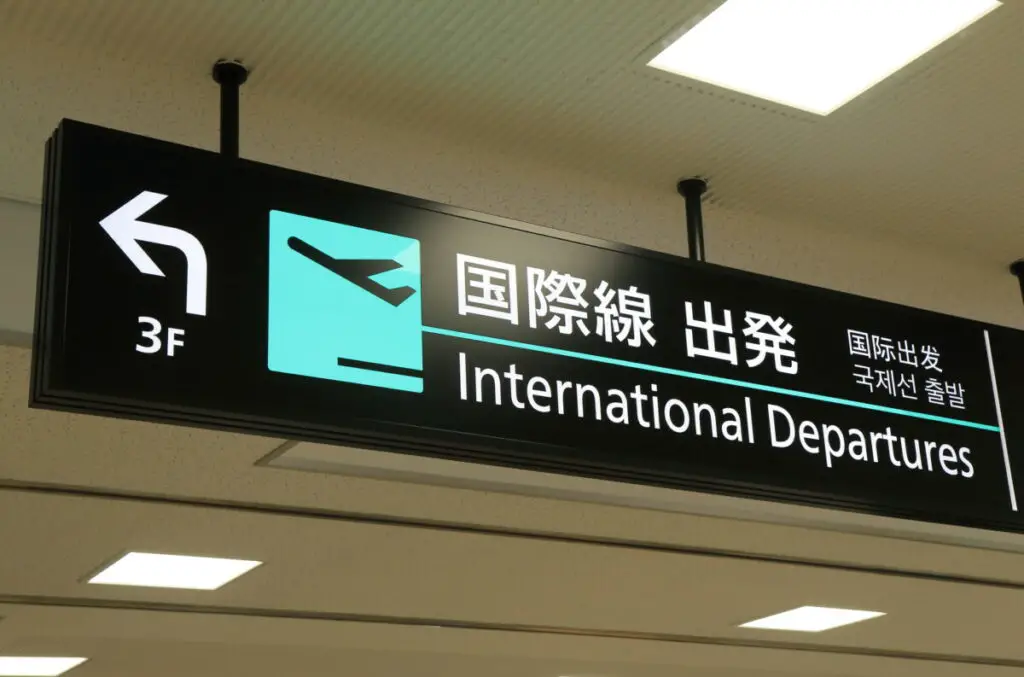
While the process may seem challenging, remember that thousands successfully renew their visas in Japan every year. By taking a proactive approach and using this guide as a reference, you can join their ranks and ensure your continued legal residency in Japan.
Your journey in Japan, whether for work, study, family, or other reasons, is filled with potential. By responsibly handling your visa renewal, you pave the way for more opportunities and experiences in this unique and enriching country.
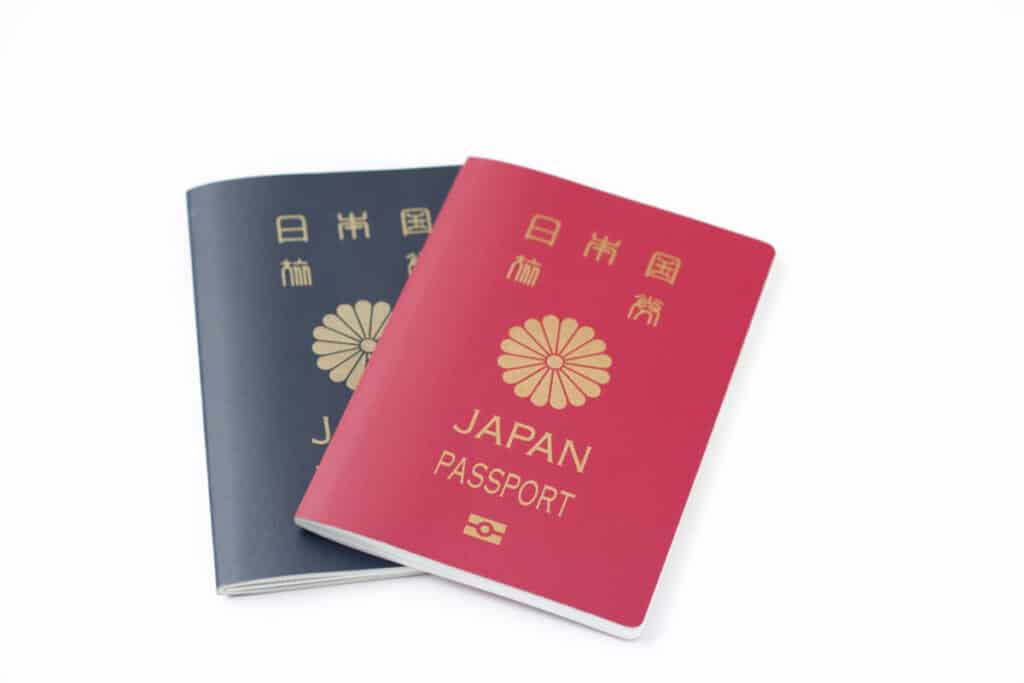
Thank you for choosing this comprehensive guide as your companion in this essential aspect of life in Japan. Should you have any further inquiries, don’t hesitate to consult the relevant chapters or seek professional assistance to tailor advice to your specific situation.
Here’s to a successful renewal process and a flourishing future in Japan! 🇯🇵
Below, I’ve compiled a list of essential websites and online resources that readers of “Japan Visa Renewal Procedures: A Comprehensive Guide to Ensuring Continuous Legal Residency” may find helpful. Please note that URLs and web content are subject to change, so it’s advisable to verify the information directly through relevant governmental or official channels.
General Visa Information and Procedures
- Japan Immigration Bureau: Comprehensive information about visas, residency, and other immigration matters. Website
- Japanese Embassies and Consulates: Find your nearest embassy or consulate for visa-related inquiries and applications. Website
Specific Visa Categories and Renewals
- Ministry of Foreign Affairs (MOFA) – Visa Types: Detailed explanations of different visa categories. Website
- Japan Student Services Organization (JASSO): Information regarding student visas and related support. Website
- Japan External Trade Organization (JETRO): Resources for investors, business managers, and entrepreneurs. Website
Permanent Residency and Long-Term Residency
- Permanent Residency Guidelines: Ministry of Justice’s guidelines on permanent residency applications. Website
- Long-Term Resident Visa Information: Information about eligibility criteria for long-term residents. Website
Emergency and Special Circumstances
- Disaster and Emergency Information: Japan Meteorological Agency’s information on natural disasters. Website
Frequently Asked Questions and Support
- Tokyo Immigration Bureau’s FAQ: Frequently asked questions related to visa renewals. Website
- Japan Legal Support Center (Houterasu): Legal support and advice for foreign residents. Website
These sites encompass a broad range of information that should assist you in various stages of the visa renewal process in Japan.
It’s highly recommended to consult with a legal professional or a visa consultant who specializes in Japanese immigration law for personalized assistance.


